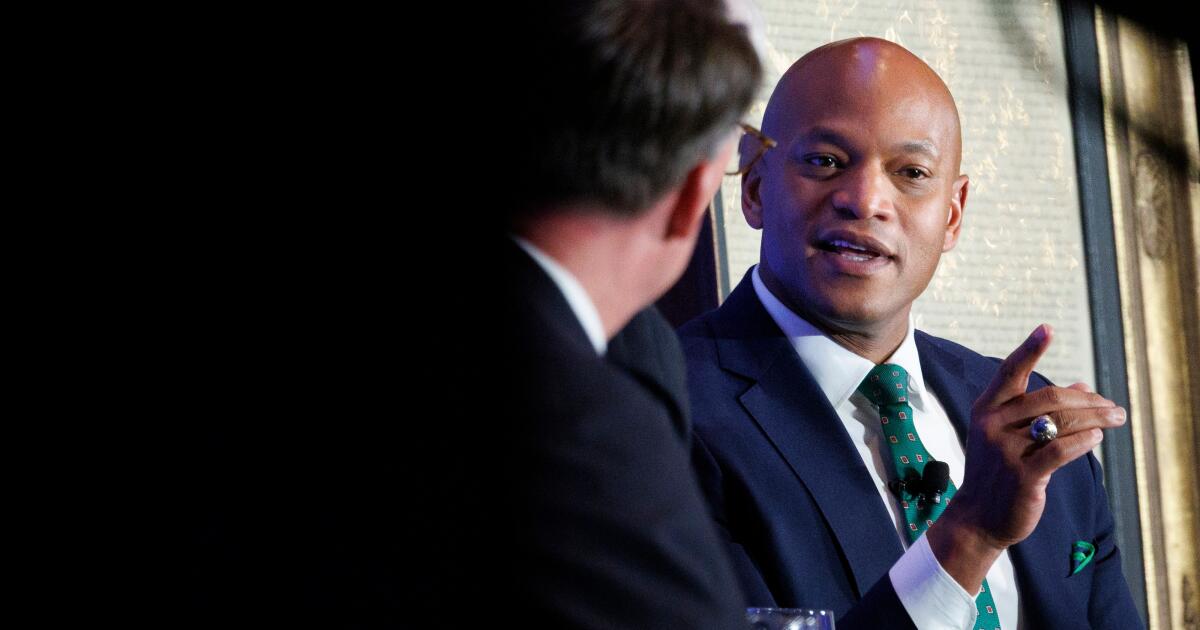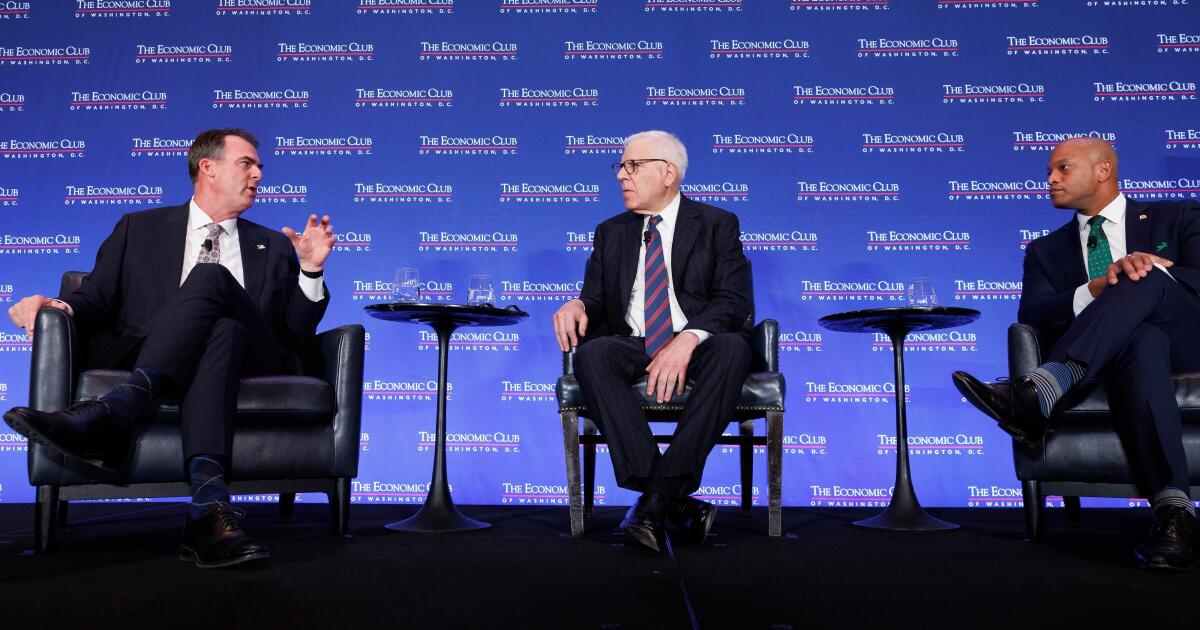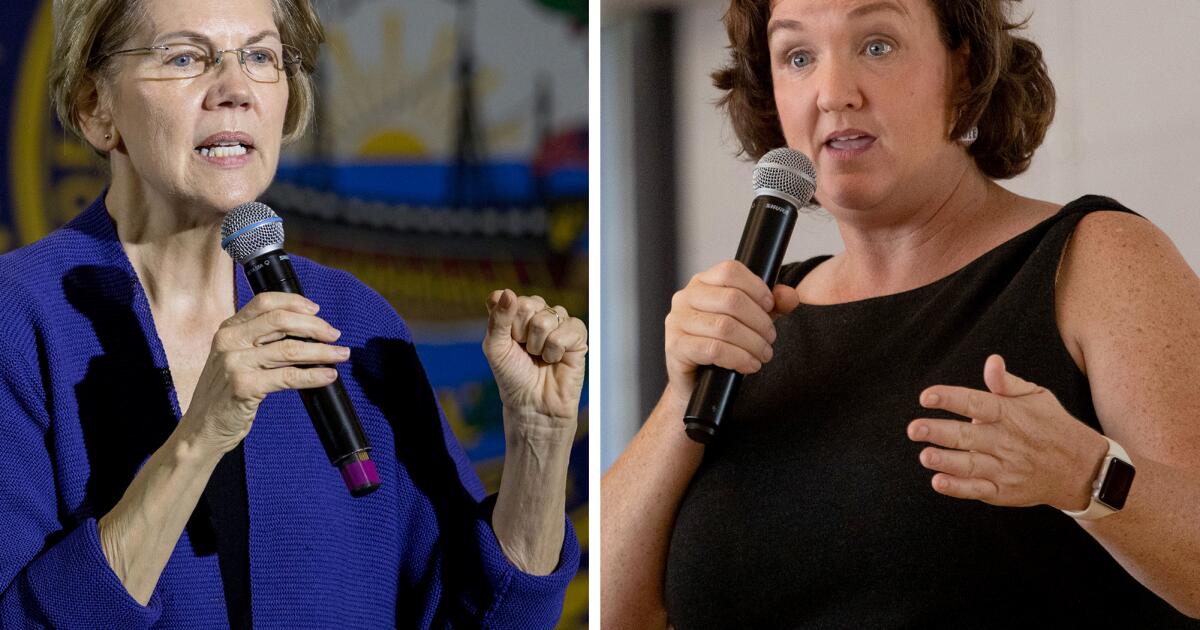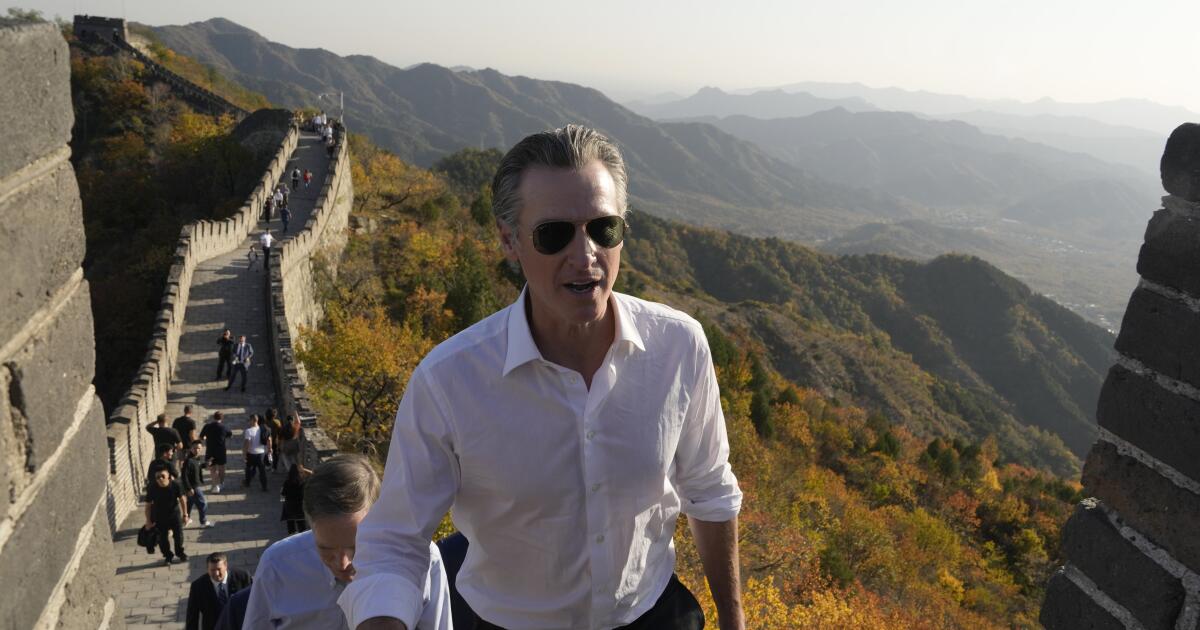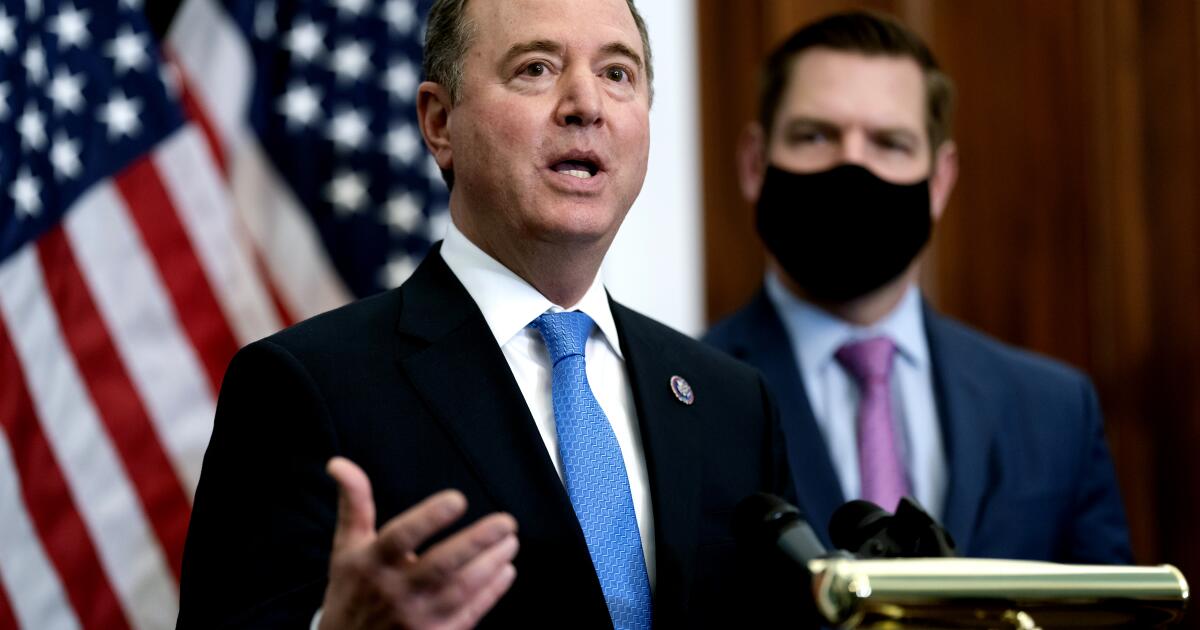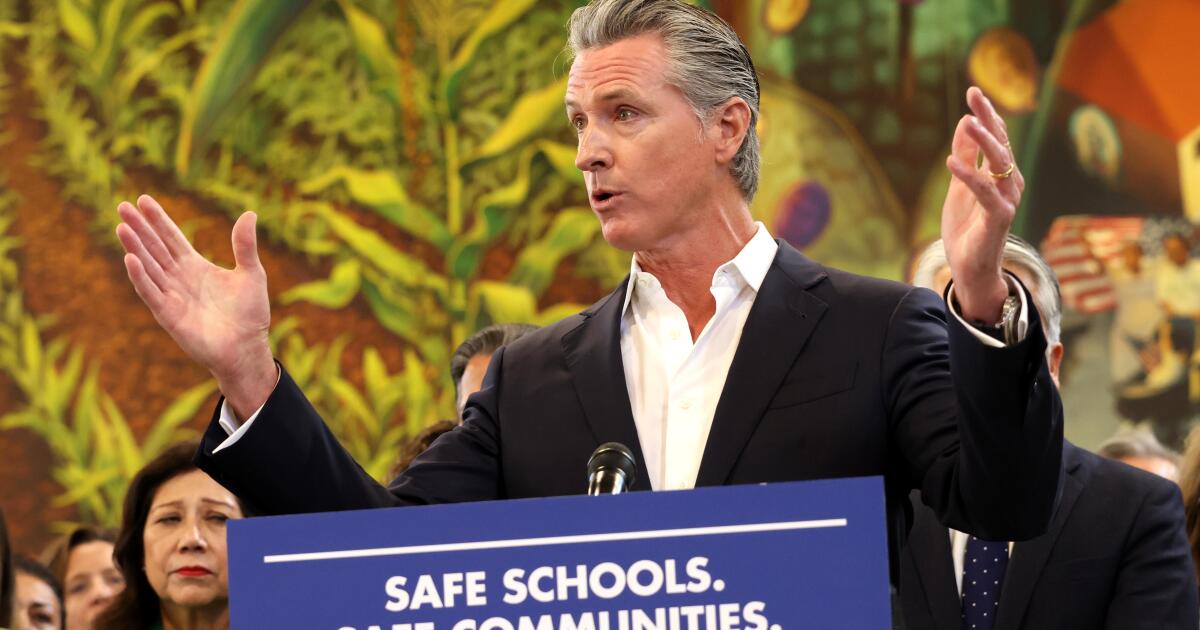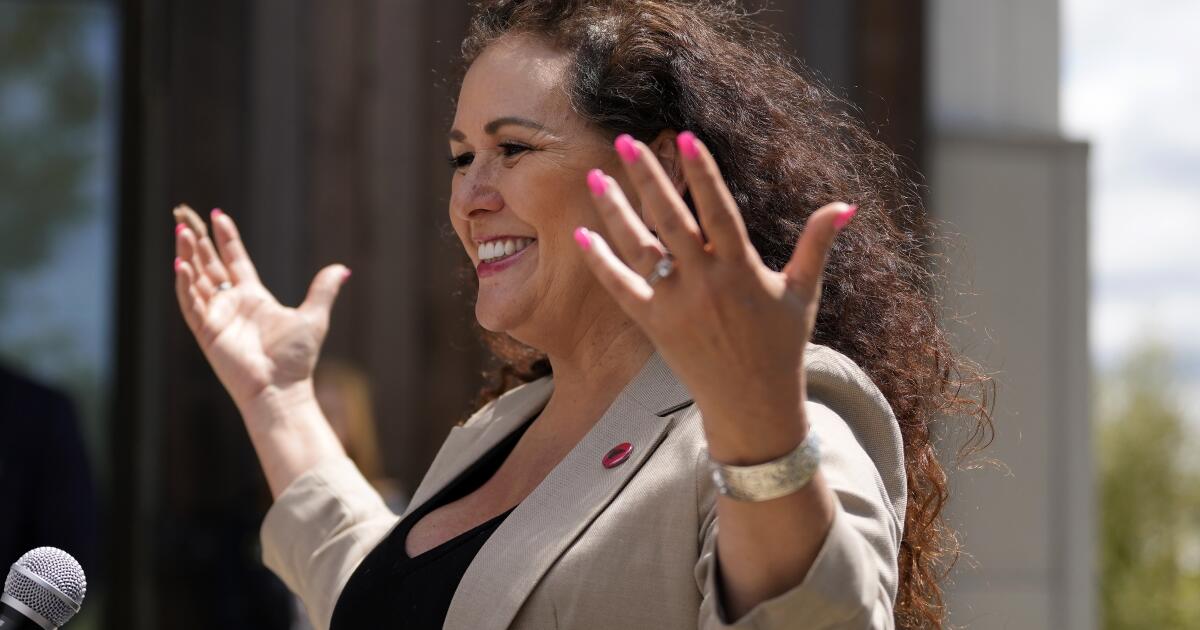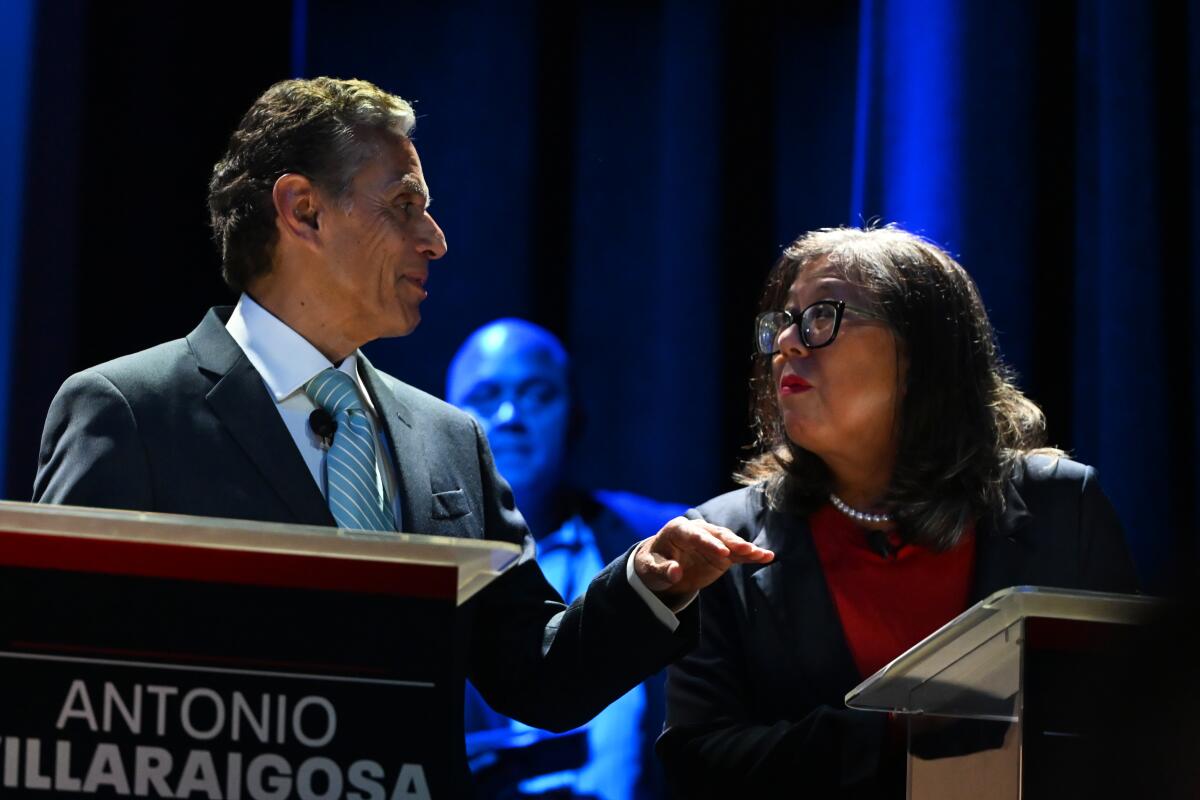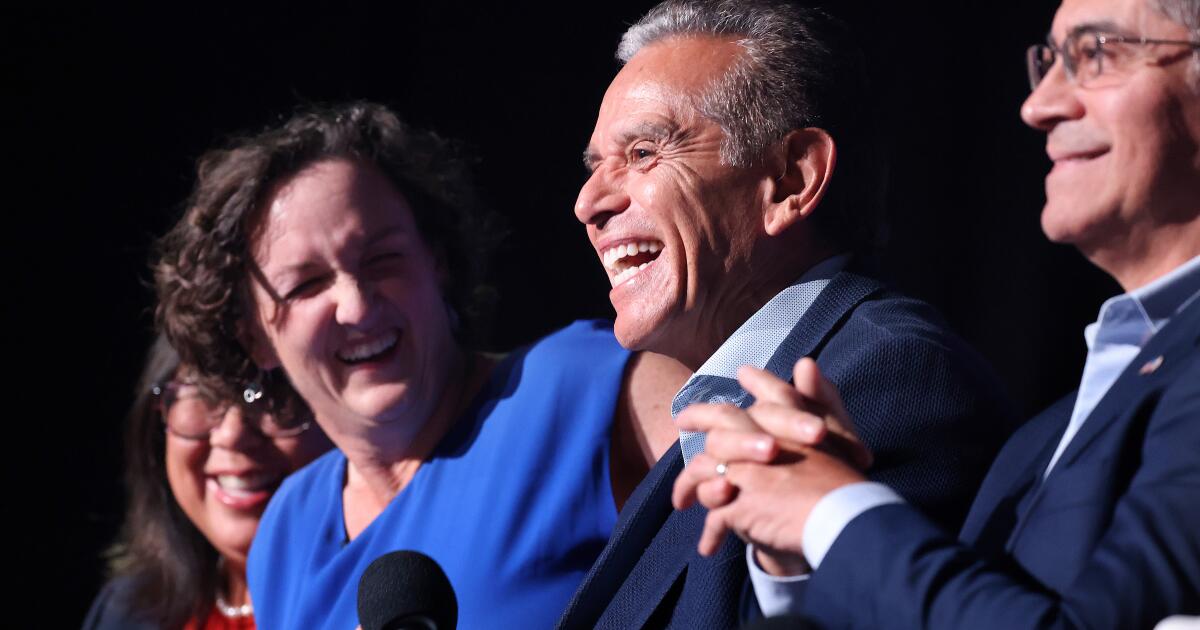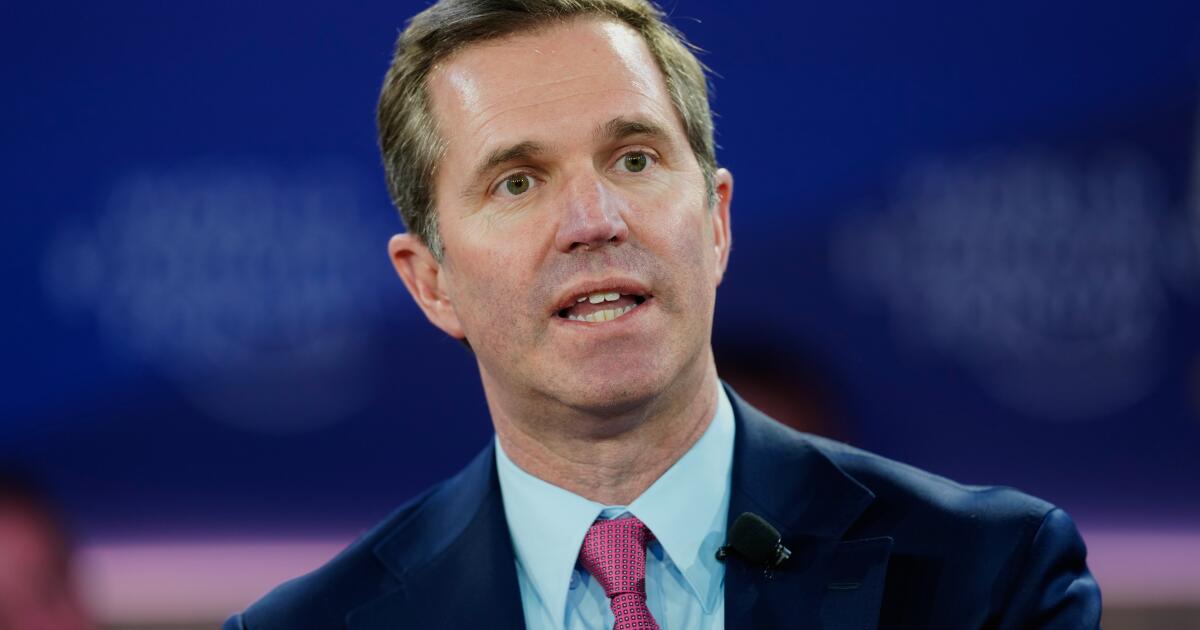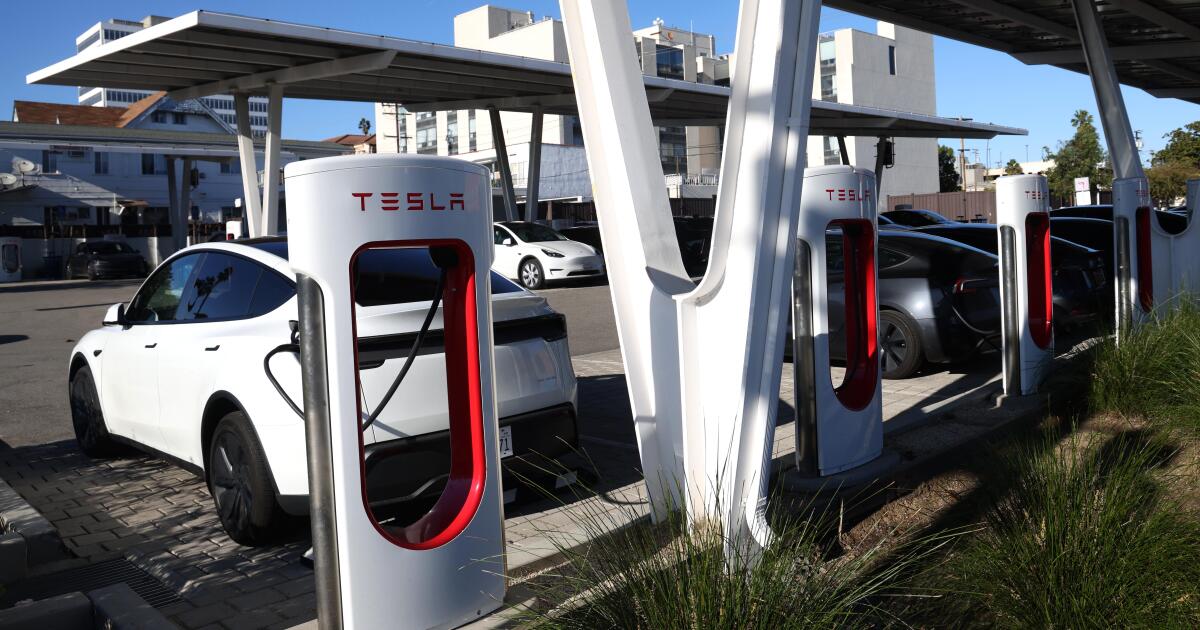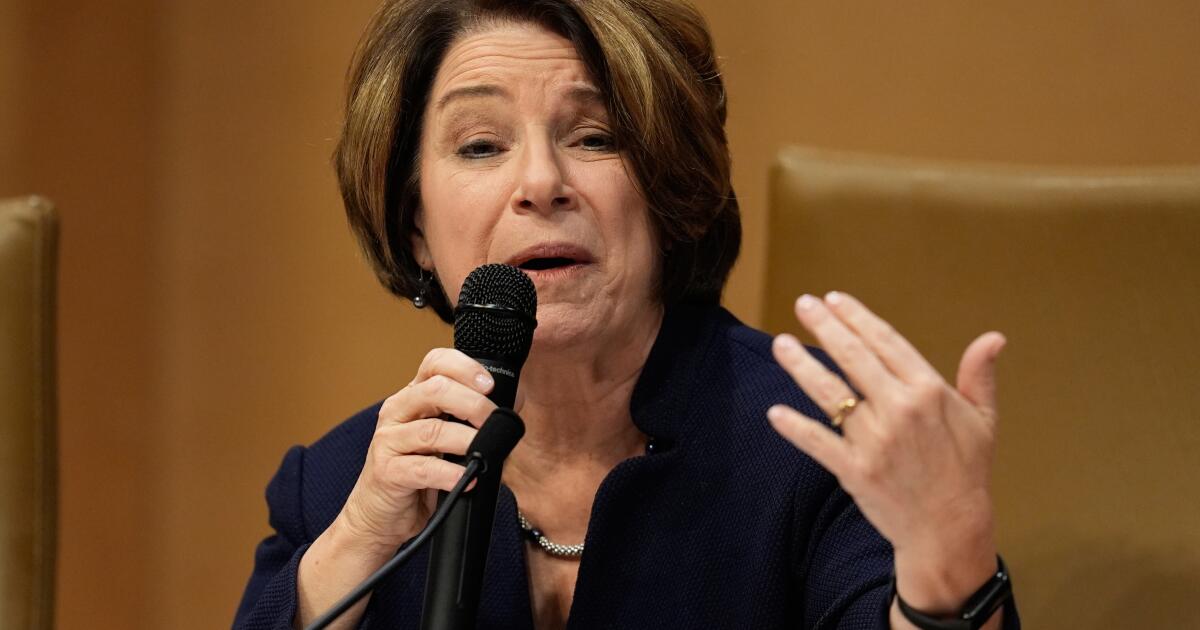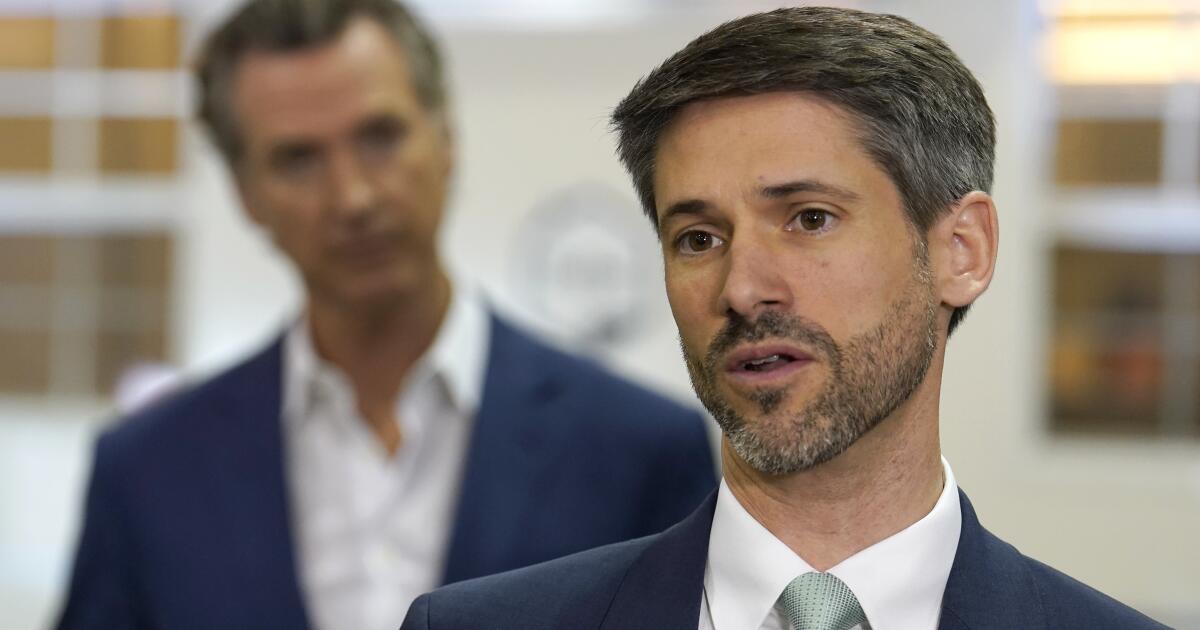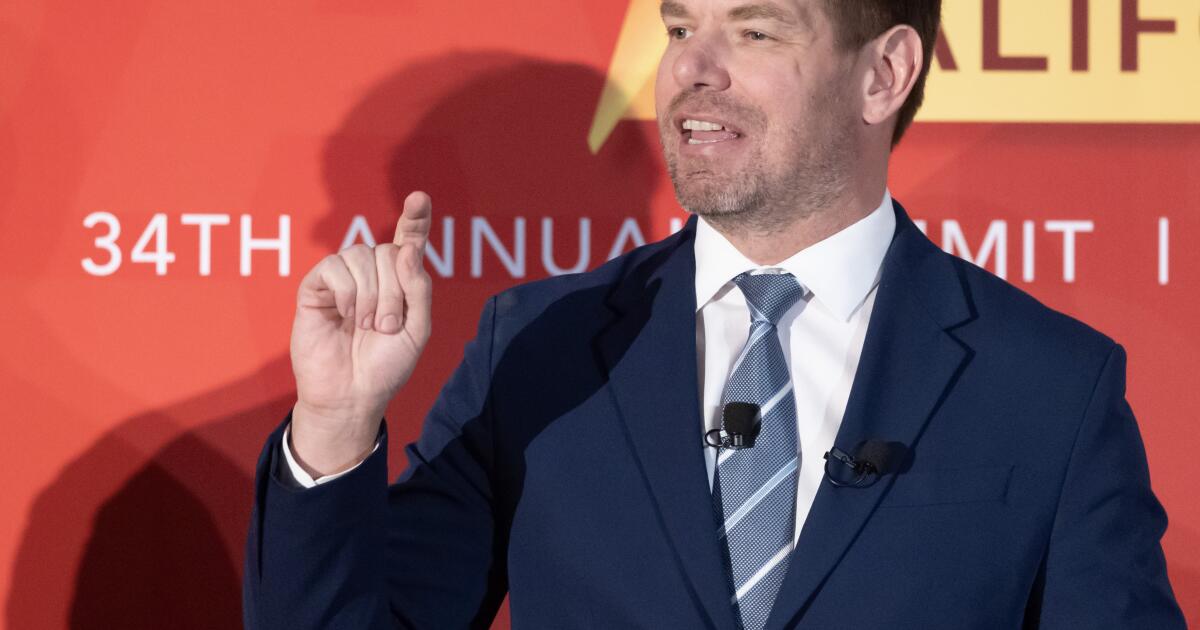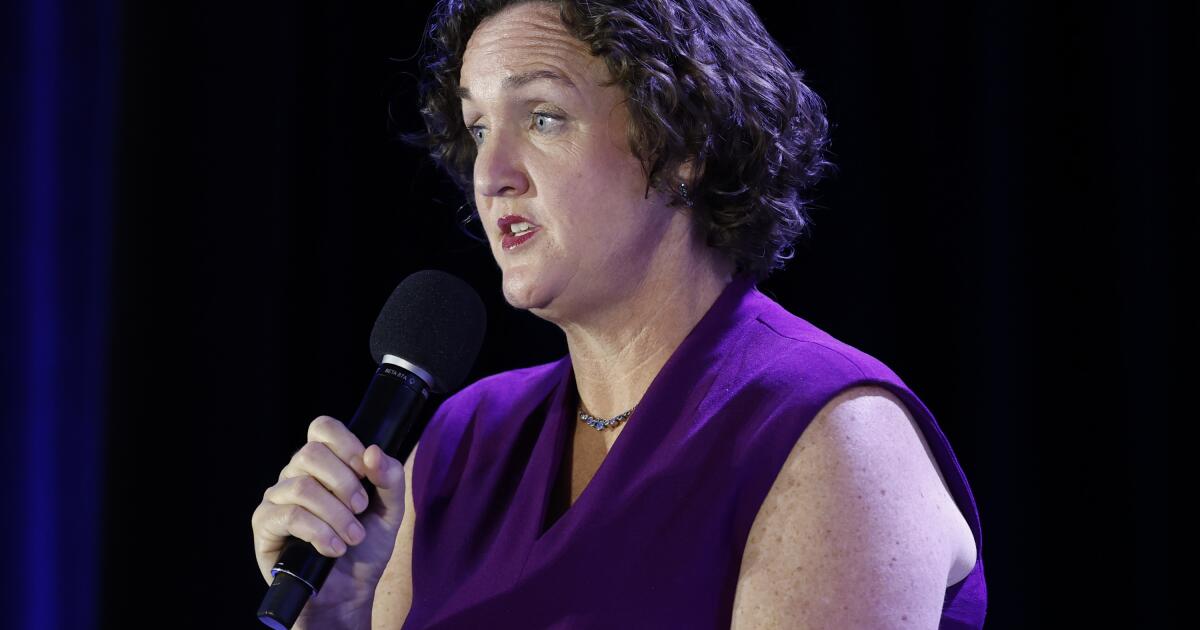Democrats’ fear rising that too many candidates in governor’s race could lead to a Republican victory
SAN FRANCISCO — Leaders of the California Democratic Party, along with liberal activists and loyal power brokers, are openly expressing fear that their crowded field of candidates running for governor may splinter the vote and open the door to a surprise Republican victory in November.
Because of those concerns, the Democrats lagging at the bottom of the pack are being urged to drop out of the race to ensure the party’s political dominance in statewide elections survives the 2026 election.
“California Democrats are prepared to do what’s required,” state party chairman Rusty Hicks told reporters at the California Democratic Party’s annual convention on Friday. “We are ready and willing and able to do what’s required … to ensure we have a strong candidate coming out of the primary to do what’s required in November.”
Nine prominent Democrats are running to replace termed-out Gov. Gavin Newsom, compared to two top GOP candidates, and could divide the Democratic electorate enough that the two Republicans could receive the most votes in the June primary and advance to the November election. Under California’s “jungle primary” system, the top two vote-getters advance to the general election, regardless of their party affiliation.
Hicks was deferential to the Democratic candidates who have long-served in public office, and have compelling personal tales and the experience to take the helm of the state. But he said there is the harsh political reality that a viable candidate needs to raise an enormous amount of money to have a winning campaign in a state of 23.1 million registered voters and some of the most expensive media markets in the nation.
The party, its allies and the candidates themselves have a “collective commitment to ensuring we do not see a Republican elected [for governor],” Hicks said.
While Hicks and other party leaders did not publicly name the candidates who ought to leave the race, among the candidates lagging in the polls are state Supt. of Public Instruction Tony Thurmond, former state Controller Betty Yee, former Los Angeles Mayor Antonio Villaraigosa and former Assembly Majority Leader Ian Calderon.
Democratic voters vastly outnumber the number of registered Republicans in the state, and no Republican has been elected to statewide office since 2006.
But given the sprawling field of gubernatorial candidates, the lack of a clear front-runner and the state’s unique primary system, the race appears up for grabs. According to an average of the most recent opinion polls, conservative commentator Steve Hilton and Riverside County Sheriff Chad Bianco — both Republicans — are tied for first place, according to Real Clear Politics. Each received the support of 15.5% of voters. The top Democrat, Rep. Eric Swalwell of Dublin, Calif., was backed by 12.5%.
In 2012, Republicans finished in first and second place in the race for a San Bernardino County congressional district — despite Democrats having a solid edge in voter registration. The four Democrats running for the seat split the vote, opening the door for a victory by GOP Rep. Gary Miller. Pete Aguilar, one of the Democrats who lost in the primary, went on to win that seat in 2014 and has served in Congress ever since.
Former House Speaker Nancy Pelosi (D-San Francisco) on Friday pushed back at the fears that two Republicans will win the top two gubernatorial spots in June.
“That’s not going to happen,” she said in an interview after speaking at a young Democrats’ reception. “And everything that you should know about the Democrats this year is we are unified. As I say, our diversity is our strength, our unity is our power. And everybody knows that there’s too much at stake.”
However, the scenario has prompted a cross section of the typically fractious party to unite behind the belief the field must shrink, whether by candidates’ choice or through pressure.
Jodi Hicks, the leader of Planned Parenthood’s California operations, said that the organization is laser-focused on congressional races, but having two Republican gubernatorial candidates “would be nothing short of devastating.”
“We have not weighed in on the governor’s race but we are paying close attention to whether this comes to play, and whether or not we do decide to weigh in and make sure that doesn’t happen,” she said.
Newsom and legislative Democrats have tried to buffer the massive federal funding cuts to reproductive care. A November election with two Republicans on the gubernatorial ballot would eliminate a key partner in Sacramento, and could impact turnout in down-ballot congressional and legislative races.
“A top-two Republican [race] would certainly have dire consequences for the midterm battle and to the governor’s office,” Jodi Hicks said.
Lorena Gonzalez, the leader of California Federation of Labor Unions, noted that her organization’s endorsement process begins on Tuesday.
“I think we are going to have some pretty honest discussions with candidates about their individual paths and where they are,” she said. “They’re all great candidates, so many of them are really good folks. But it’s starting to get to be that time.”
She expects the field to begin to thin in the coming days and weeks.
The conversation went beyond party leaders, taking place among delegates such as Gregory Hutchins, an academic labor researcher from Riverside.
“My goal at the convention, it’s not necessarily that the party coalesces around one particular candidate, but more, this is a test to see what candidates have a level of support that they can mount a successful campaign,” said the 29-year-old, who said he hopes to see some candidates drop out after the weekend.
“Am I concerned long term that [a top-two Republican runoff] could be a thing? Yes and no,” he said “I’m not concerned that we’re not going to solve this problem before the primary, but I do think we need to start getting serious about, ‘We need to solve this problem soon.’”
Not everyone agreed.
Tim Paulson, a San Francisco Democrat who supports Yee, called efforts to push people out of the race “preemptive disqualification.”
“This is nothing but scare tactics to get people out of the race,” he said. “This is still a vibrant primary. Nobody knows who the front-runner is yet.”
Bob Galemmo, 71, countered that many people did not believe Donald Trump would be elected president in 2016 and fears two Republicans could advance to the general election.
“You should never say never,” he said. “If we could get down to like four or five [candidates], that would be helpful.”
The efforts had already began.
RL Miller, the chair of the state Democratic Party’s environmental caucus, said Yee ought to drop out.
Yee, “who is at the bottom of the polls, needs to be taking a good long look at whether she is serving the party or being selfish by staying in the race,” Miller said.
Yee, a former state party vice chair, pushed back forcefully, saying pressure to drop out of the race “would just be undemocratic.”
“First of all, I’ve served this party for a long time. I don’t do it out of selfishness, by any means,” she said at a Saturday gathering where she provided breakfast burritos to delegates. “But I’ll just say this — the race is wide open.”
Yee‘s campaign manager noted that 40% of voters are undecided, and the candidate said no one has asked her directly to exit the race, but that someone started a rumor a month or two ago that she was going to drop out and run for insurance commissioner instead.
“I’m not dropping out, and I don’t think any candidate should go out,” Yee said.
Calderon said Swalwell had urged him to get out of the race.
Calderon noted the largest group of voters is still undecided and defended staying in the race to try to reach those voters after speaking at a gubernatorial forum at the Commonwealth Club on Friday
“I stay very consistent in that 1 to 3% range,” he joked. “But my challenge is access to resources and visibility, which is something that could change within a day with the right backing and support.”
Swalwell and his campaign did not respond to a request for comment.

